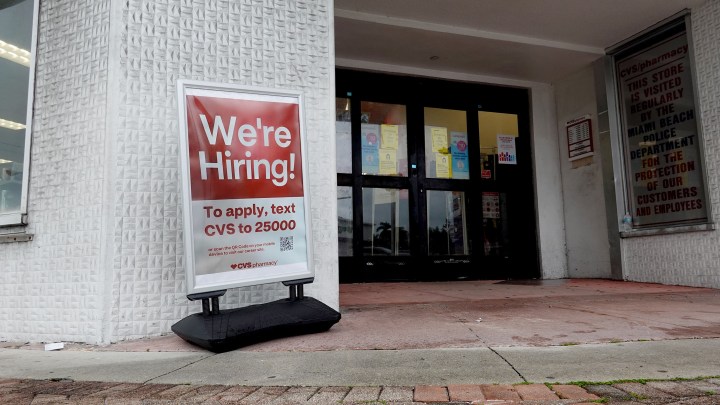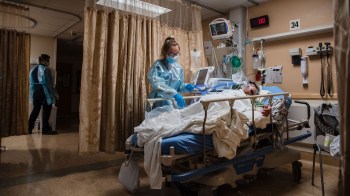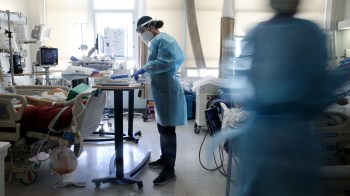
Omicron will disrupt staffing in more than just the airline industry
Omicron will disrupt staffing in more than just the airline industry

On Monday, the Centers for Disease Control and Prevention shortened the isolation period for people who get COVID-19 by half.
The agency now says people without symptoms can safely be around others five days after their positive test results, replacing previous guidance that said people who test positive should stay home and isolate for a full 10 days
So with cases of the omicron variant on the rise, some industries are facing another wave of staffing disruptions.
Juan Padro owns 12 restaurants in the Denver area. In the weeks before Christmas, he said each had workers test positive for COVID.
“We had a situation where a kid threw an ugly sweater party in a one-bedroom apartment,” Padro said. Staff from three of Padro’s restaurants were on the guestlist, “and they all got COVID. No kidding.”
With those workers isolating and others unwilling to come in for fear of getting infected, Padro temporarily closed several of his restaurants.
“This has probably, from a staffing perspective, been the most challenging time that we’ve had,” he said.
Omicron will disrupt staffing in more than just the service industry, according to Glen Mays with the Colorado School of Public Health.
“It does have the potential to make health care workforce shortages even more acute,” he said.
In other industries, Mays said employers might pressure sick workers to come in anyway, or workers may make that call on their own because they can’t afford the time off.
“Those kinds of trends could be very problematic in terms of facilitating the spread of this virus in workplace settings,” Mays said.
At the start of the pandemic, temporary government support helped keep workers safe and businesses afloat, said Aaron Sojourner, a labor economist at the University of Minnesota.
“So basically yeah, like taking the expense off of the business’ books and making it part of a social insurance,” he said.
Now that federally mandated COVID sick leave and related tax incentives have expired, Sojourner said businesses are on their own.
There’s a lot happening in the world. Through it all, Marketplace is here for you.
You rely on Marketplace to break down the world’s events and tell you how it affects you in a fact-based, approachable way. We rely on your financial support to keep making that possible.
Your donation today powers the independent journalism that you rely on. For just $5/month, you can help sustain Marketplace so we can keep reporting on the things that matter to you.


















